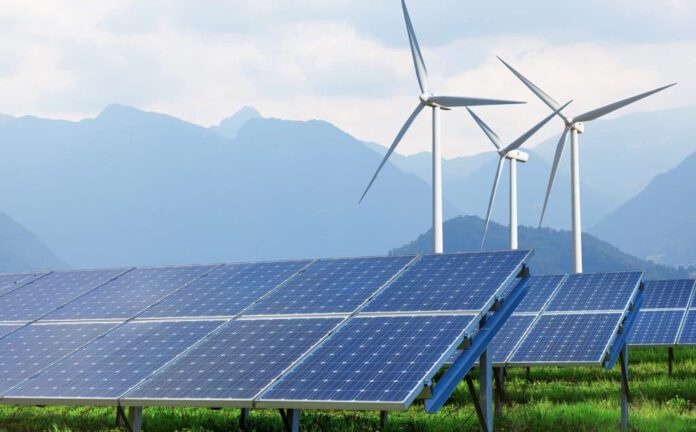The Mpumalanga Provincial Government is further expected to strengthen its partnerships with the Presidential Climate Commission, the Climate Investment Fund and the World Bank, in order to diversify the local economies and enable the reduction of coal dependency
Premier Refilwe Mtshweni-Tsipane has assured communities that depend on coal mining that transitioning to renewable energy will not threaten their livelihoods. The premier said this at a time when there are concerns that the coal mining industry is facing possible closures and mass job losses. She assured Mpumalanga residents that local mines will remain operational, in line with the commitments made by President Cyril Ramaphosa during his State of the Nation Address (SONA).
Mtshweni-Tsipane confirmed that Mpumalanga, which has the highest number of coal mines in the country, would support the work of the new minister of electricity upon appointment.
“During the debate on the SONA, we indicated our readiness and willingness to spare no effort in ensuring that the work of the Minister of Electricity is supported. After all, with 80% of the power stations located in our province, we are the undisputed home of the national grid,” she stated, imploring residents who live near power stations to work with law enforcement agencies in exposing and reporting criminals who are behind acts of sabotage.
Mtshweni-Tsipane recognised global challenges facing coal mining, including competition from rising renewable energy sources and increased regulations on coal production. She also emphasised the need for the energy mix, which will reduce South Africa’s dependency on coal. The premier elaborated: “It is common cause that you cannot talk about loadshedding and electricity shortages, and not talk about the Just Energy Transition. In this regard, during the debate on the SONA, we talked at length about how our province is heavily invested in the letter and spirit of the Just Transition, in particular in ensuring that the commitment to ‘leave no one behind’ is made real.”
The premier added that the Just Transition Framework also covered various community members who rely on mining jobs, ensuring that mineworkers are not rendered unemployed once the province transitions to renewable energy. “A just transition contributes to the goals of decent work for all, social inclusion, and the eradication of poverty. A just transition puts people at the centre of decision-making, especially those most impacted, the poor, women, people with disabilities, and the youth,” she explained, quoting the Just Transition Framework.
The Mpumalanga Provincial Government is further expected to strengthen its partnerships with the Presidential Climate Commission, the Climate Investment Fund and the World Bank, in order to diversify the local economies and enable the reduction of coal dependency. These partnerships are aimed at ensuring that mining communities continue to benefit from coal mining through investment in infrastructure, renewable energy sources, and improved safety standards.
“Our interest includes that old mines should be rehabilitated, and in the process, the vast tracts of land be gainfully utilised in the new industries that conform with Just Transition principles – such as manufacturing, agriculture, and assembly of solar voltaic panels, wind turbines, batteries, and others. We would also like to see our people participate and derive benefit from small scale, surface mining, and other beneficiation opportunities,” the premier said.
In his SONA, president Ramaphosa said: “We will continue our just transition to a low-carbon economy at a pace our country can afford and in a manner that ensures energy security,” promising that in the process, no one will be left behind.
“Through the Just Energy Transition Investment Plan,” the president told the nation, “R1.5-trillion will be invested in our economy over the next five years in new frontiers such as renewable energy, green hydrogen and electric vehicles.”



